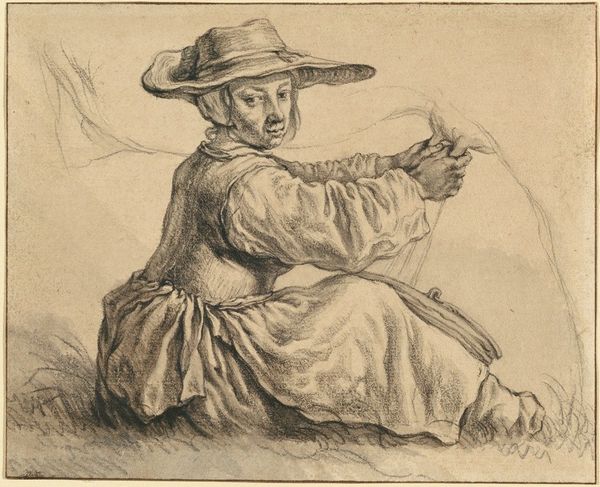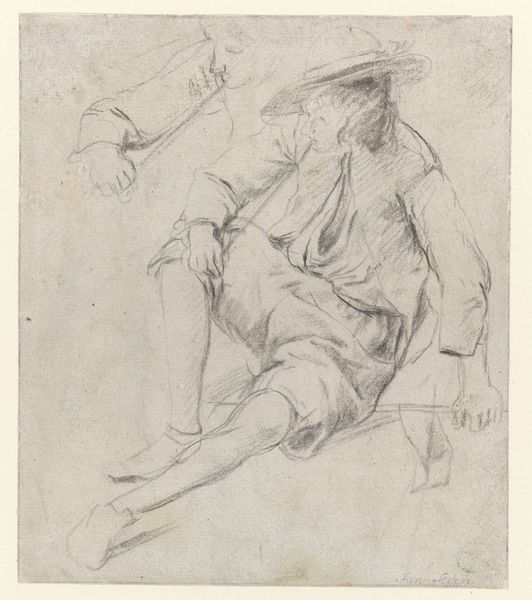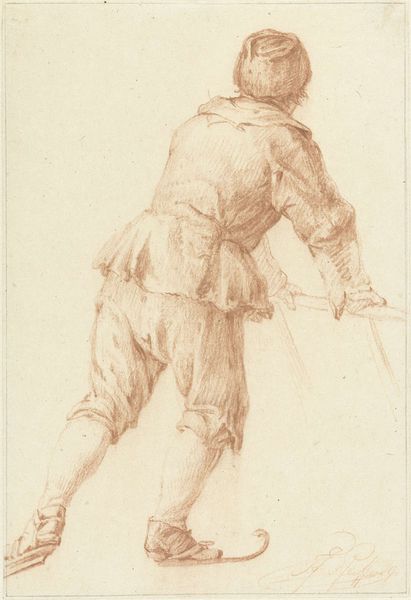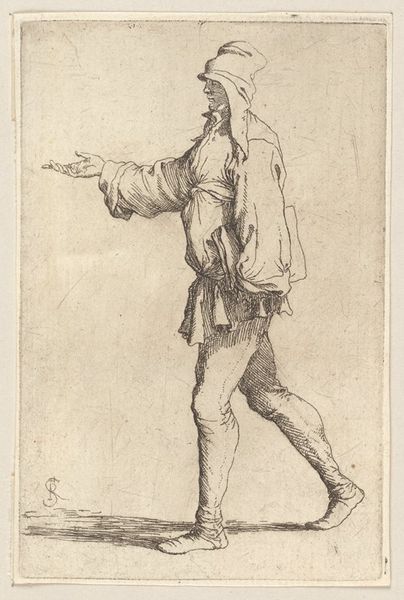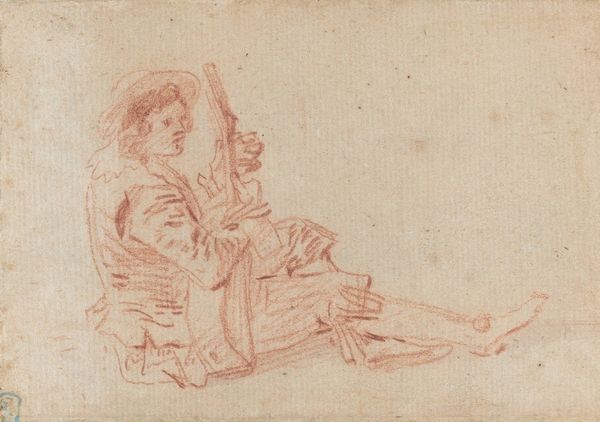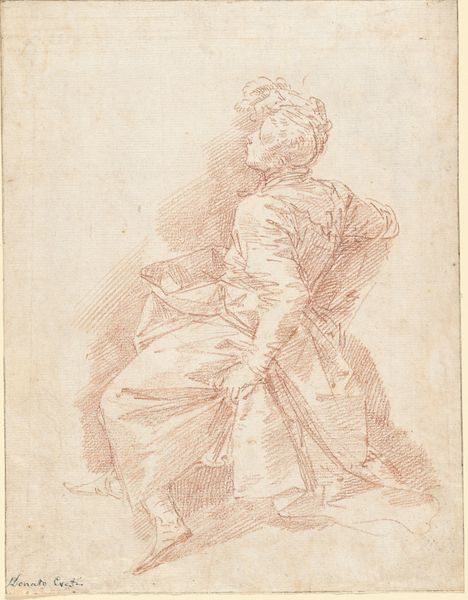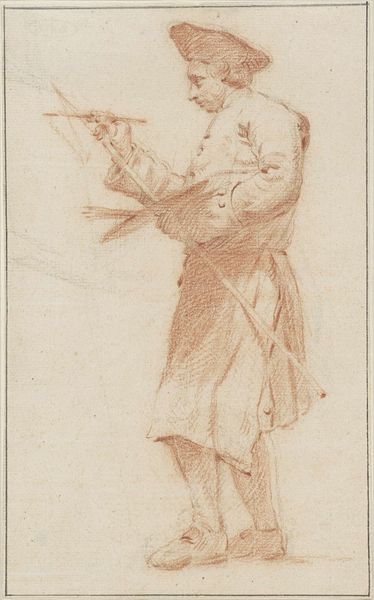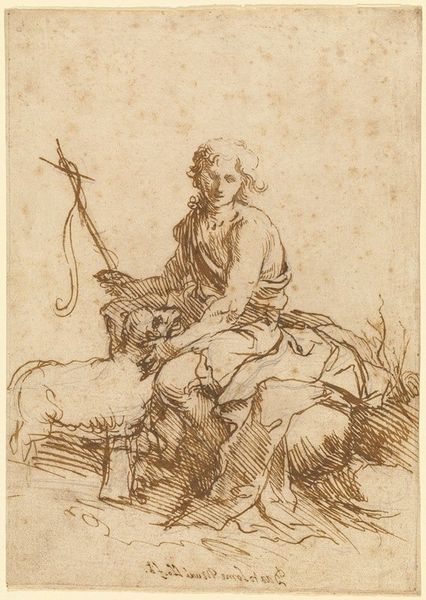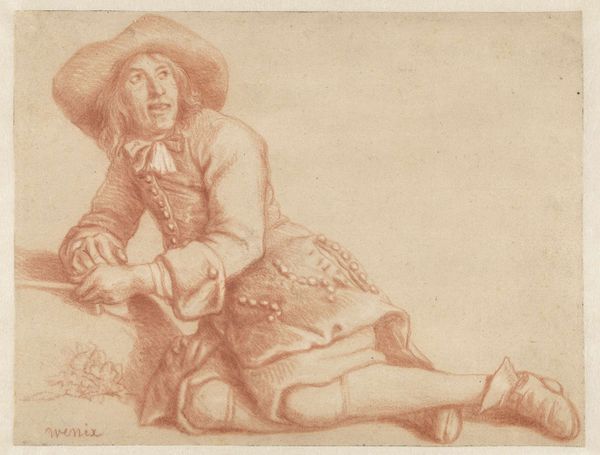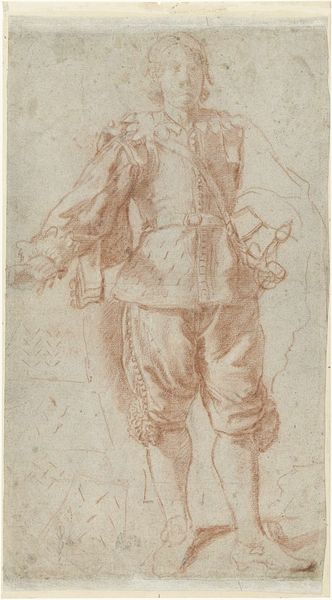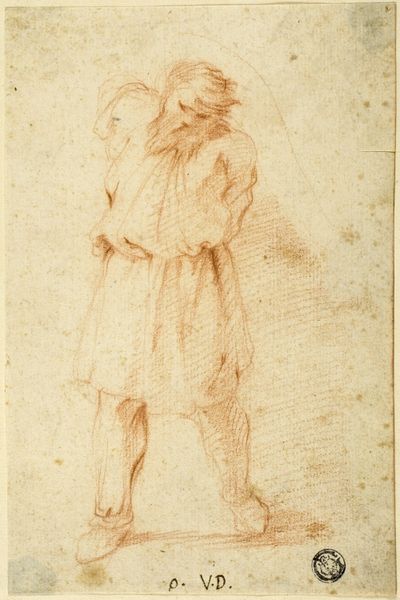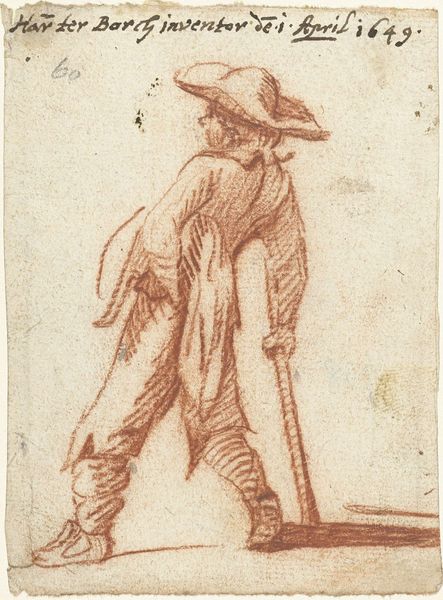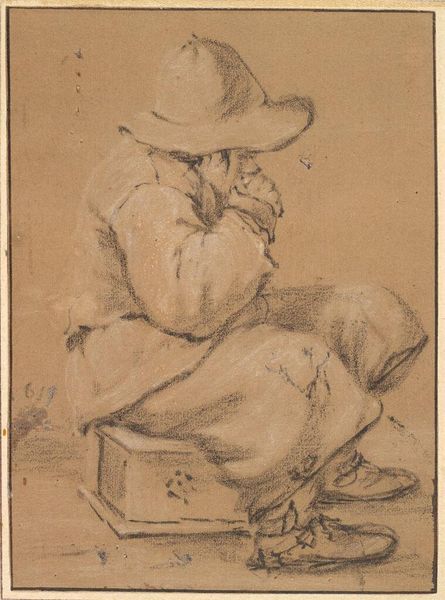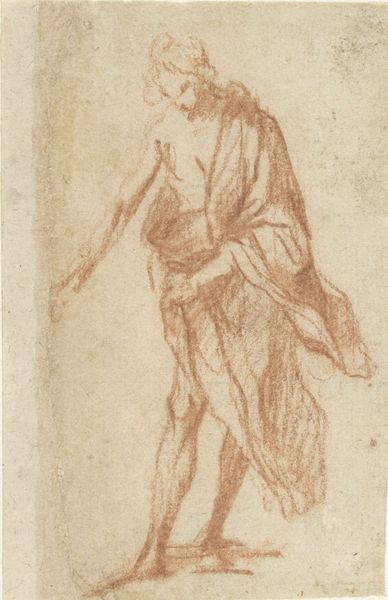
#
toned paper
#
light pencil work
#
pencil sketch
#
charcoal drawing
#
personal sketchbook
#
pencil drawing
#
coffee painting
#
underpainting
#
watercolour illustration
#
watercolor
Dimensions: height 144 mm, width 165 mm
Copyright: Rijks Museum: Open Domain
Editor: Here we have "Young Man Sitting on the Ground," created sometime between 1646 and 1672 by Adriaen van de Velde. It’s a red chalk drawing, currently held at the Rijksmuseum. I’m struck by how casual it feels – almost like a snapshot. What can you tell me about it? Curator: Let’s focus on the red chalk. What does using that particular material tell us? It’s relatively inexpensive and readily available, suggesting a sketch, a study perhaps, rather than a finished piece intended for display. The ease with which Van de Velde could acquire and manipulate the chalk reflects the developing art market of the Dutch Golden Age. Who do you think would purchase or consume a piece like this and how would the economic background play into art creation? Editor: So, it’s about the accessibility of materials, potentially aimed at a different kind of buyer? Rather than wealthy patrons wanting large oil paintings, perhaps? Curator: Precisely. Consider the implications: more artists have access to materials, creating a broader range of art, more workshops emerge. How might this ease of production have changed the art world’s social and artistic landscape? It could democratize art. Are there shadows under his legs or is that on the paper? Editor: There seem to be a couple shadow marks right beneath him. Would that imply that this artist was making art for any commoner with a few coins to spend and an appreciation for studies? Curator: Absolutely. This sketch offers a direct look into the workshop, emphasizing a process deeply rooted in labor. It is also possible that is on the page already. This drawing isn't about symbolic imagery, but emphasizes form through material efficiency, therefore providing social context through materialist techniques. Editor: That's a fascinating way to look at it – it makes me think differently about the artist's intentions, and the art's historical impact. Curator: It's a reminder that art exists within, and is shaped by, the material conditions of its creation.
Comments
No comments
Be the first to comment and join the conversation on the ultimate creative platform.
